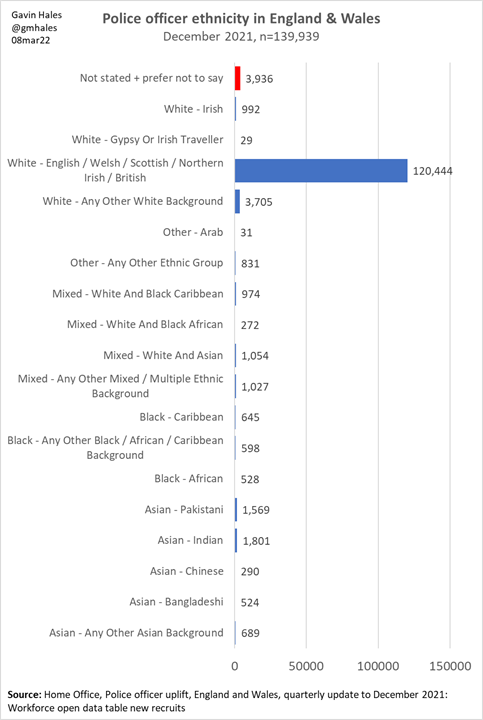
Charting changing female representation among police officers in England and Wales from 2007 to 2021.
Up from 23% to 32% nationally. #IWD2022 #policeworkforce
1/
Up from 23% to 32% nationally. #IWD2022 #policeworkforce
1/

The same data indexed to 2007.
Derbyshire have made the biggest gains in female representation (up from 22% to 36%), CoLP the lowest (up from 20% to 24%).
2/
Derbyshire have made the biggest gains in female representation (up from 22% to 36%), CoLP the lowest (up from 20% to 24%).
2/

Source: Home Office Police Workforce Open Data Tables, 31 March 2021 assets.publishing.service.gov.uk/government/upl… via gov.uk/government/sta…
3/
3/
Adding a link to my look at detailed police officer ethnicity data
4/
https://twitter.com/gmhales/status/1501491044315246596
4/
Because the Met now publish their own detailed data we can examine the intersection of ethnicity & gender representation.
V few Bangladeshi and Pakistani heritage officers are female, vs. v many 'White other' (I suspect mainly E Euro heritage).
met.police.uk/sd/stats-and-d…
5/
V few Bangladeshi and Pakistani heritage officers are female, vs. v many 'White other' (I suspect mainly E Euro heritage).
met.police.uk/sd/stats-and-d…
5/

• • •
Missing some Tweet in this thread? You can try to
force a refresh










